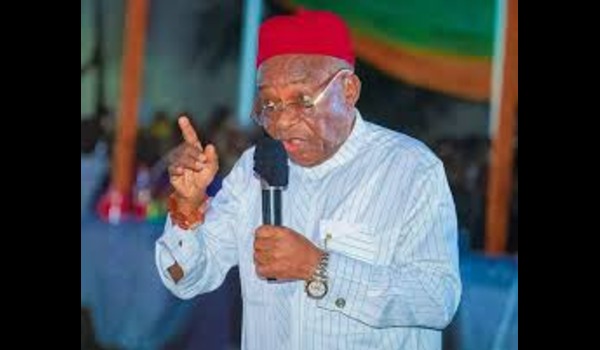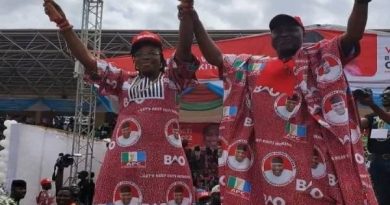Fmr. fed lawmaker rejects creation of new state from Akwa Ibom calling it usurpation of Ibibio land
A former House of Representatives member for Eket federal constituency, Chief Nduese Essien, has faulted proposal for the creation of Obolo State from present Akwa Ibom State saying agitators are whipping up sentiments beyond tolerable boundaries.
Essien, a former minister of Lands, Housing and Urban Development, warned against the alleged plot to take over what he described as “Ibibio ancestral lands under the guise of state creation.”
According to him, the ongoing agitation by the Obollo ethnic nationality comprising Eastern Obolo, Oron nation in Akwa Ibom and the Opobo (Andoni) people of the neighbouring Rivers State is a joke that no political and legislative fiat could manipulate into existence.
He recounted a century-long history of aggressive efforts to seize control of the Ibibio coastline, particularly the Stubbs Creek Forest, which he said “had been lawfully defended by the Ibibio people up to the Privy Council in London.”
Essien made the remark in an interview weekend during the installation of His Eminence Ntenyin Solomon Etuk, as the 4th Grand Patron of the apex socio-cultural group – Mboho Mkparawa Ibibio (MMI): “Today, the same people, with new allies from neighboring states, are trying again this time under the guise of creating an Obolo State to annex Ibibio land.
”Let me emphasise unambiguously that any attempt to appropriate Ibibio land must be vehemently rejected at all times. The ill-fated expedition has been exposed and must come to an end. No part of Ibibio land will be annexed.”
He decried the repeated attempts at encroachments, recalling the second wave of aggression through violence in 1993, which was halted by the Justice Ephraim Akpata Commission of Inquiry, and a third in 2014, during the National Conference, where collaborators sought to merge the area as a part of the neighboring Rivers State for a proposed “Oil Rivers State”.
Chief Essien’s remarks drew resounding applause from the audience, which included traditional rulers, top government dignitaries, professionals, youth leaders, and the press.
While the Grand Patron installation of the Oku Ibom Ibibio was the central event, the Ata of Eket used the opportunity to challenge Mboho Mkparawa Ibibio and other sociocultural organisations to rise beyond ceremonial functions and play a stronger role in protecting Ibibio heritage, advocating for justice, and influencing national discourse.
He praised Mboho’s achievements since its establishment in 1987, including educational institutions, agricultural enterprises, tourism outfits, and cultural initiatives, but urged its leadership to resist using it as a platform for personal political ambition.
“Mboho must develop the courage to speak truth to power,” he said. “Its loyalty must be to the people, not to any political establishment.”
Addressing the youth directly, Chief Essien emphasised the importance of cultural preservation and historical consciousness, calling on them to speak the Ibibio language fluently, uphold traditions, and reject vices such as cultism and disrespect for elders.
The installation of the Oku Ibom Ibibio as Grand Patron was hailed as a symbolic alignment between traditional authority and the aspirations of the Ibibio people, maintaining that “the Oku Ibom now serves as a link between our glorious past, our beautiful present, and the promise of a bright future.”
He used the occasion to renew his call for unity among all Akwa Ibom people, urging sociocultural groups to pursue a collective identity and direct their energies toward national relevance and developmental programs.




